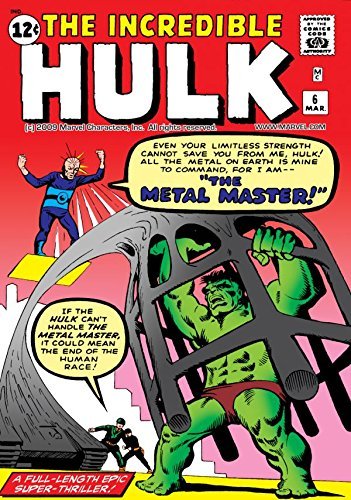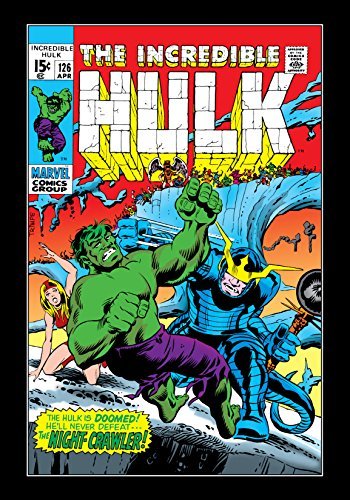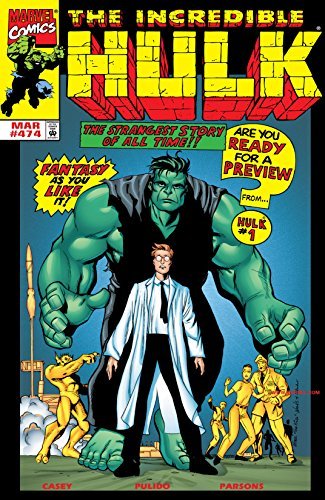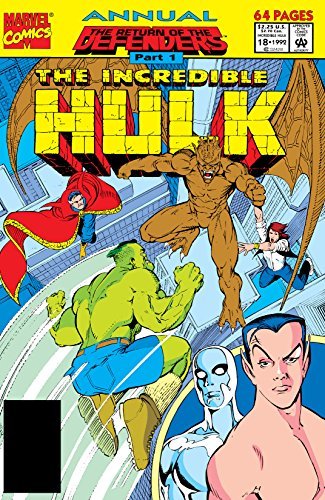
Part of Series
The Incredible Hulk has gone through many a transformation since he burst on the scene in the wake of an ill-fated Gamma Bomb experiment in 1962. Throughout his checkered history, however, one character has remained a constant in the annals of the Green Goliath: Betty Ross Banner, girlfriend and later wife of the Hulk's alter-ego, Dr. Bruce Banner. This retrospective volume charts the history of the Hulk through the experiences of Betty, from the monster's origin up to Betty's death in this June's shocking issue of The Incredible Hulk.Introduced as the meek but beautiful daughter of irascible General "Thunderbolt" Ross, Betty always represented the unattainable to withdrawn scientist Bruce Banner. After his transformation into the hulk, this perceived gulf grew even wider as the pressure of hiding his second self consumed much of Banner's life. Betty would marry Colonel Glenn Talbot, head of the Army's task force assigned to stopping the Hulk's rampages. Eventually, however, the two would reunite and finally marry, with Betty grounding Bruce in the real world and giving him new reason to fight against the monster within him throughout his various transformations. Containing material from Incredible Hulk volume 1 #1, and Incredible Hulk volume 2 #'s 169, 319, 344, 372, 377 and 346.
Authors


Todd McFarlane is a Canadian comic book artist, writer, toy manufacturer/designer, and media entrepreneur who is best known as the creator of the epic occult fantasy series Spawn. In the late 1980s and early 1990s, McFarlane became a comic book superstar due to his work on Marvel Comics' Spider-Man franchise. In 1992, he helped form Image Comics, pulling the occult anti-hero character Spawn from his high school portfolio and updating him for the 1990s. Spawn was one of America's most popular heroes in the 1990's and encouraged a trend in creator-owned comic book properties. In recent years, McFarlane has illustrated comic books less often, focusing on entrepreneurial efforts, such as McFarlane Toys and Todd McFarlane Entertainment, a film and animation studio. In September, 2006, it was announced that McFarlane will be the Art Director of the newly formed 38 Studios, formerly Green Monster Games, founded by Curt Schilling. McFarlane used to be co-owner of National Hockey League's Edmonton Oilers but sold his shares to Daryl Katz. He's also a high-profile collector of history-making baseballs.


Librarian note: There is more than one author in the GoodReads database with this name John Lindley Byrne is a British-born Canadian-American author and artist of comic books. Since the mid-1970s, Byrne has worked on nearly every major American superhero. Byrne's better-known work has been on Marvel Comics' X-Men and Fantastic Four and the 1986 relaunch of DC Comics’ Superman franchise. Coming into the comics profession exclusively as a penciler, Byrne began co-plotting the X-Men comics during his tenure on them, and launched his writing career in earnest with Fantastic Four (where he also started inking his own pencils). During the 1990s he produced a number of creator-owned works, including Next Men and Danger Unlimited. He also wrote the first issues of Mike Mignola's Hellboy series and produced a number of Star Trek comics for IDW Publishing.

aka David Peters Peter Allen David (often abbreviated PAD) is an American writer, best known for his work in comic books and Star Trek novels. David often jokingly describes his occupation as "Writer of Stuff". David is noted for his prolific writing, characterized by its mingling of real world issues with humor and references to popular culture. He also uses metafiction frequently, usually to humorous effect, as in his work on the comic book Young Justice.


Stan Lee (born Stanley Martin Lieber) was an American writer, editor, creator of comic book superheroes, and the former president and chairman of Marvel Comics. With several artist co-creators, most notably Jack Kirby and Steve Ditko, he co-created Spider-Man, the Fantastic Four, Thor as a superhero, the X-Men, Iron Man, the Hulk, Daredevil, the Silver Surfer, Dr. Strange, Ant-Man and the Wasp, Scarlet Witch, The Inhumans, and many other characters, introducing complex, naturalistic characters and a thoroughly shared universe into superhero comic books. He subsequently led the expansion of Marvel Comics from a small division of a publishing house to a large multimedia corporation.

See also John Harkness. Steve Englehart went to Wesleyan University in Middletown, Connecticut. After a stint in the Army, he moved to New York and began to write for Marvel Comics. That led to long runs on Captain America, The Hulk, The Avengers, Dr. Strange, and a dozen other titles. Midway through that period he moved to California (where he remains), and met and married his wife Terry. He was finally hired away from Marvel by DC Comics, to be their lead writer and revamp their core characters (Superman, Batman, Wonder Woman, Flash, and Green Lantern). He did, but he also wrote a solo Batman series (immediately dubbed the "definitive" version) that later became Warner Brothers' first Batman film (the good one). After that he left comics for a time, traveled in Europe for a year, wrote a novel (The Point Man™), and came back to design video games for Atari (E.T., Garfield). But he still liked comics, so he created Coyote™, which within its first year was rated one of America's ten best series. Other projects he owned (Scorpio Rose™, The Djinn™) were mixed with company series (Green Lantern [with Joe Staton], Silver Surfer, Fantastic Four). Meanwhile, he continued his game design for Activision, Electronic Arts, Sega, and Brøderbund. And once he and Terry had their two sons, Alex and Eric, he naturally told them stories. Rustle's Christmas Adventure was first devised for them. He went on to add a run of mid-grade books to his bibliography, including the DNAgers™ adventure series, and Countdown to Flight, a biography of the Wright brothers selected by NASA as the basis for their school curriculum on the invention of the airplane. In 1992 Steve was asked to co-create a comics pantheon called the Ultraverse. One of his contributions, The Night Man, became not only a successful comics series, but also a television show. That led to more Hollywood work, including animated series such as Street Fighter, GI Joe, and Team Atlantis for Disney.






